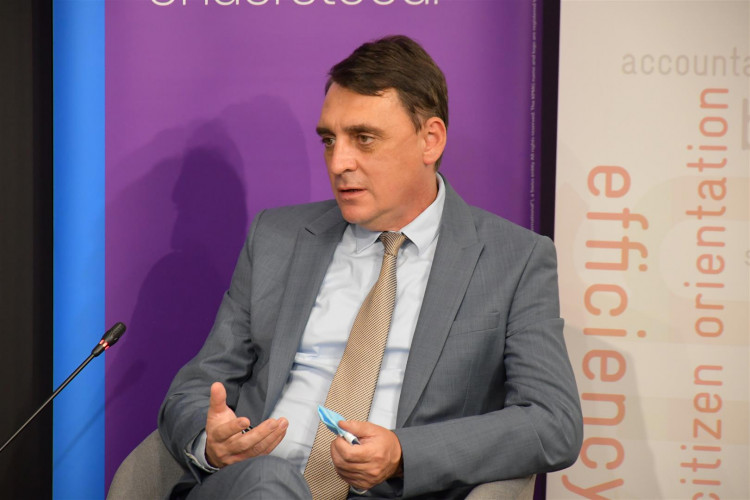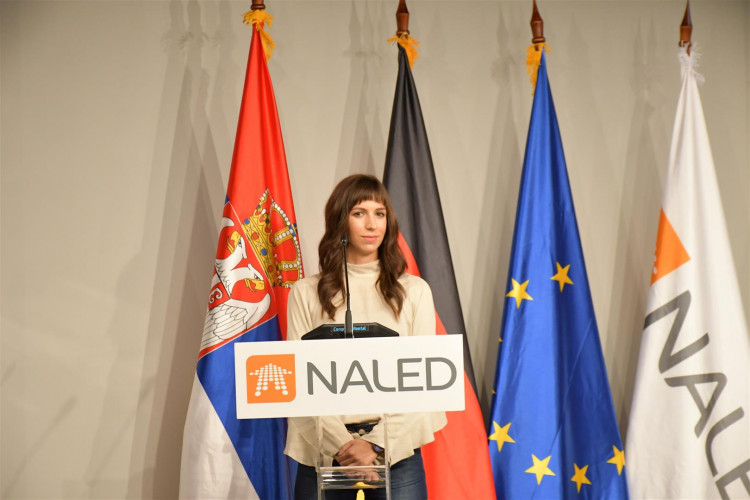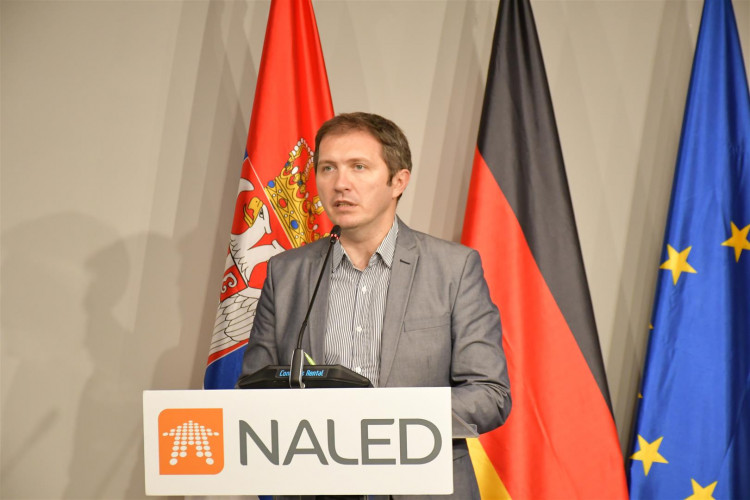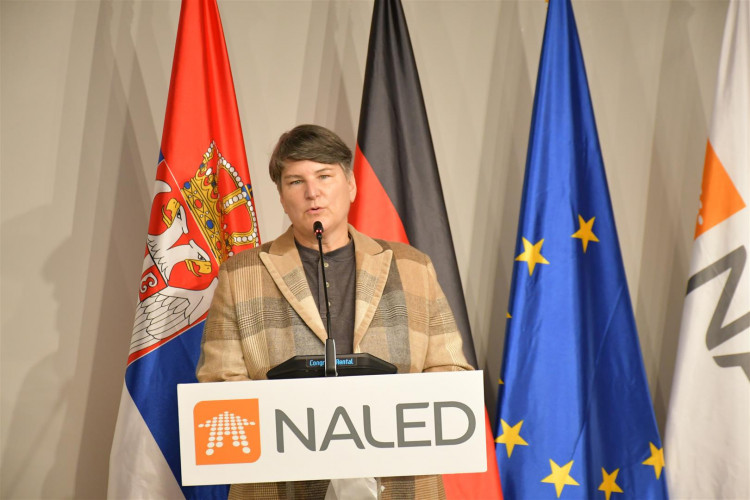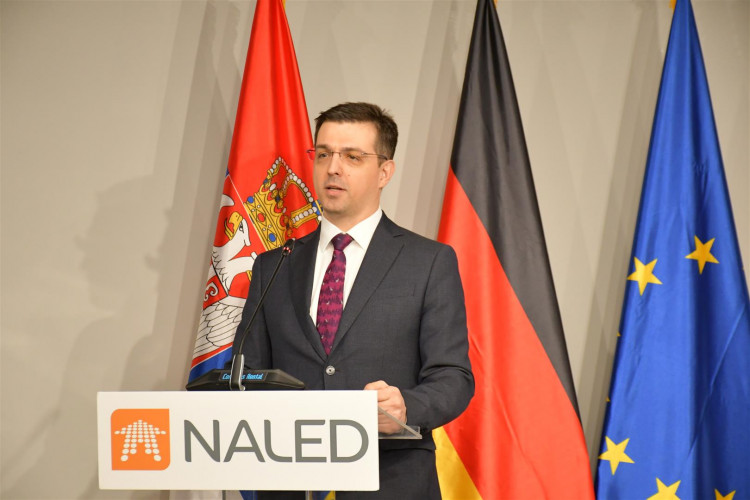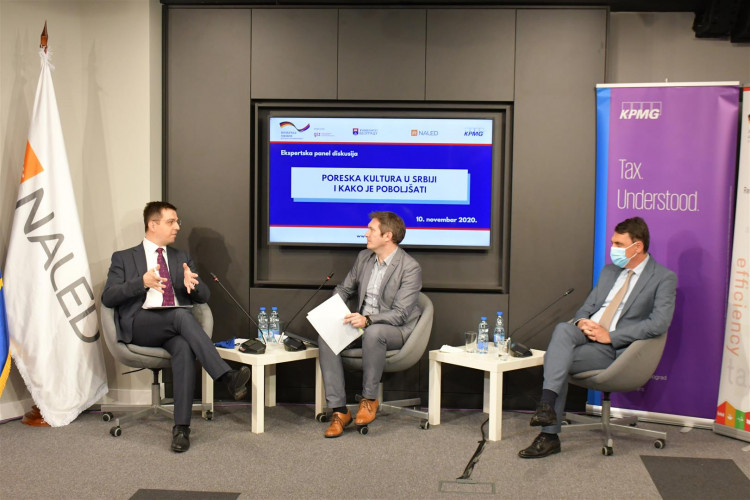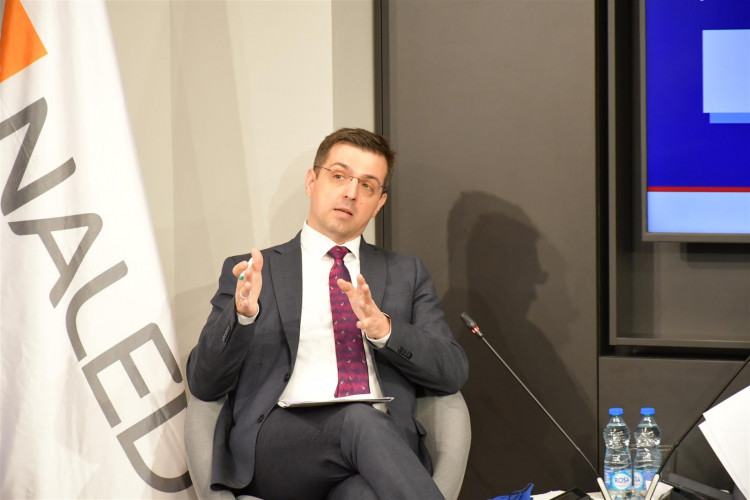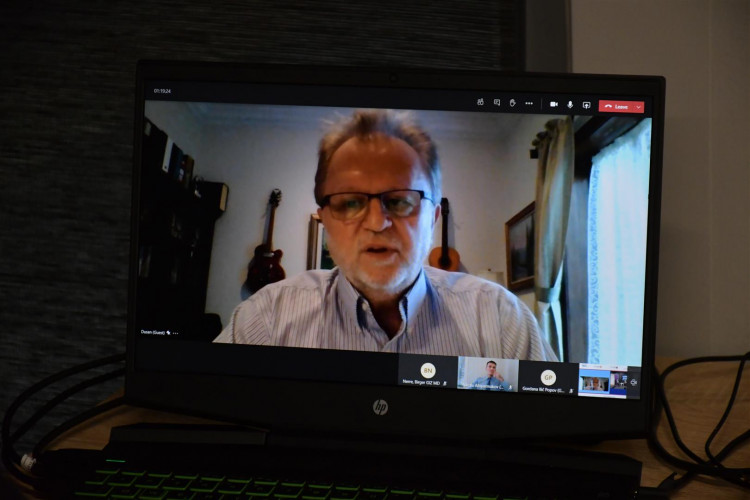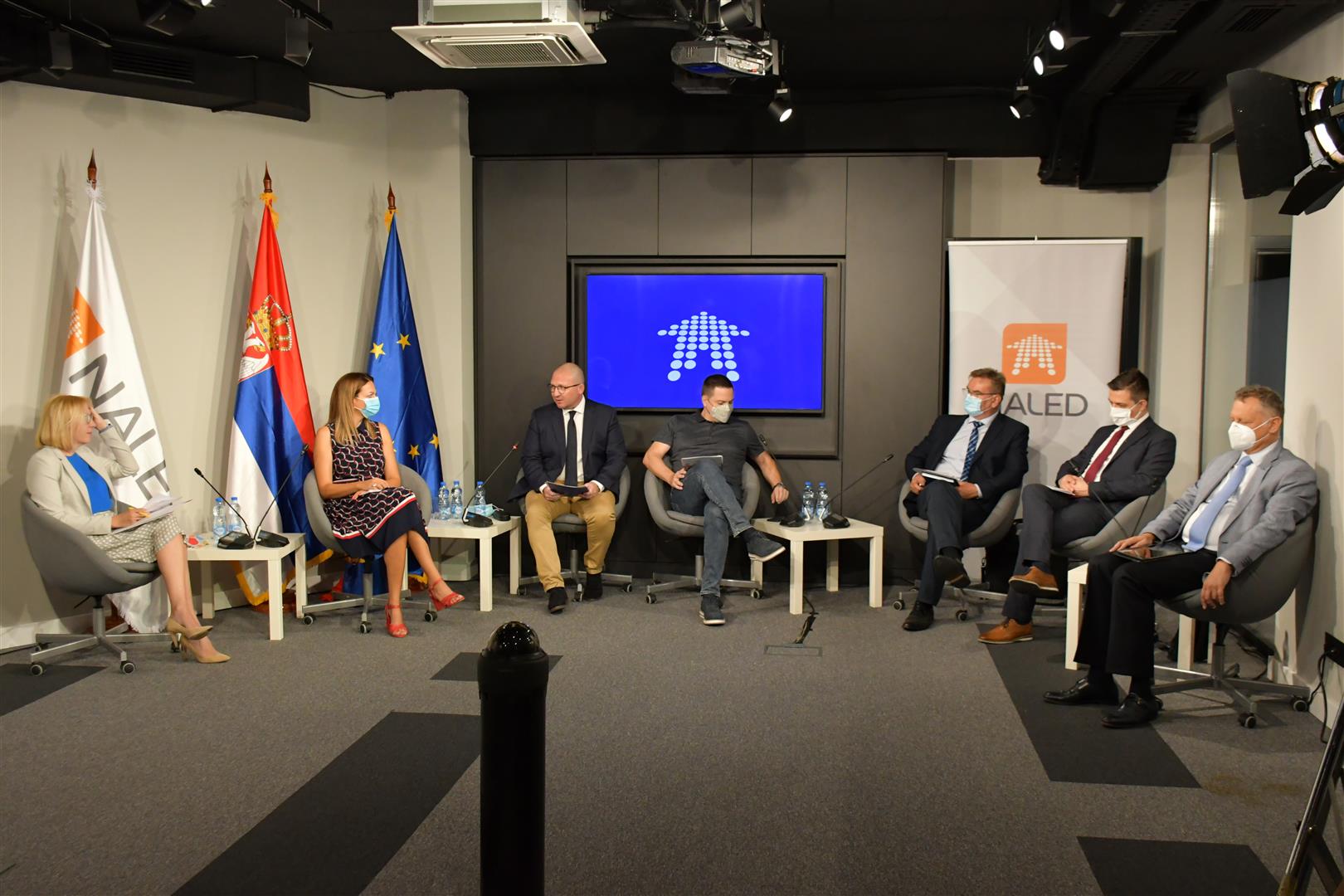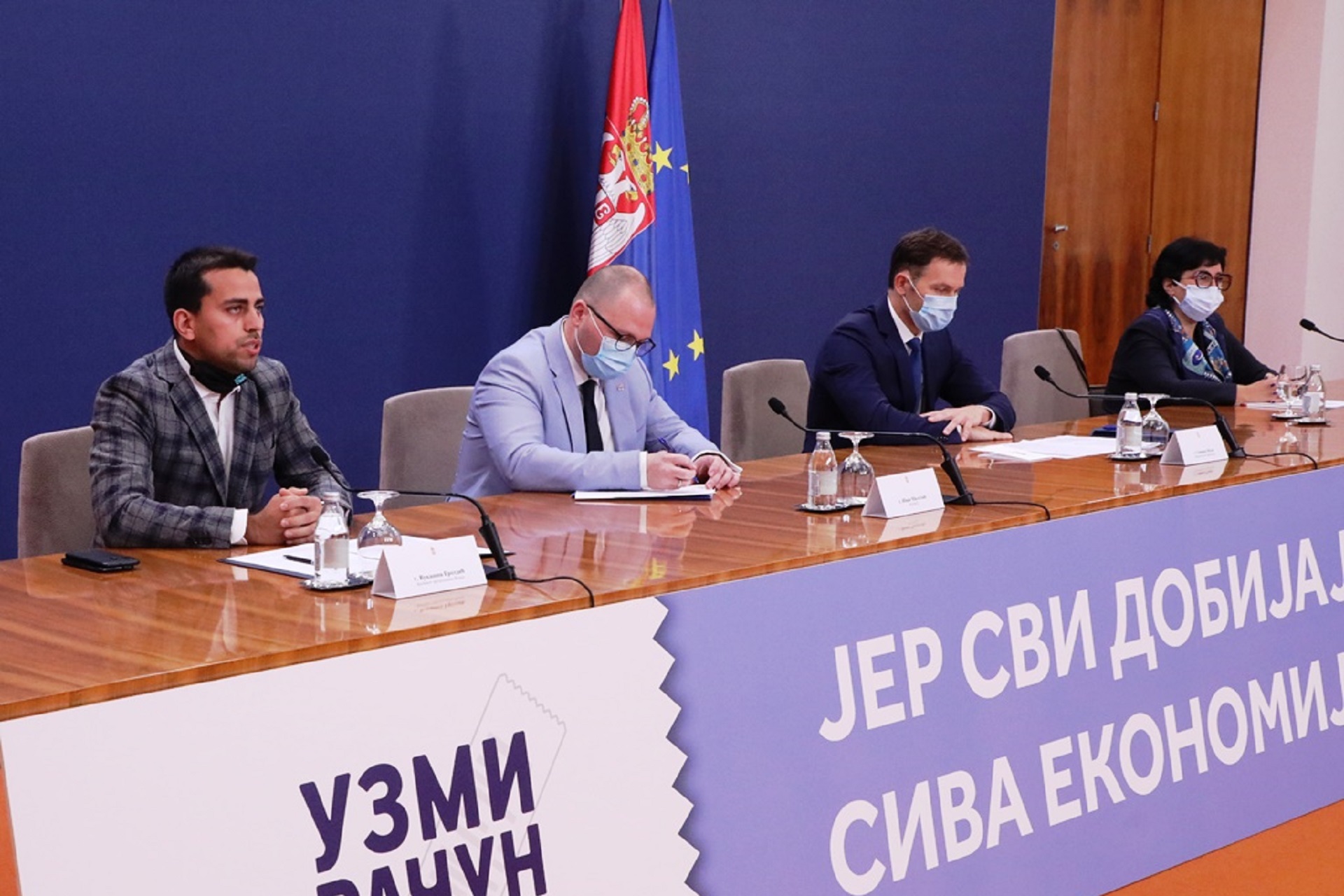Carrot or stick for better tax collection
NALED and the University in Belgrade have today launched a student competition „Tax debate: Carrot or stick“. Students will compete for valuable prizes by arguing whether more responsible position of citizens and businesses towards paying taxes can be better achieved through sitmulative or repressive measures.
The debate competition is organized with the support of KPMG and German Development Cooperation Implemented by GIZ within the joint project “Supporting the Government of Serbia in Countering Shadow Economy 2018–2020”, with the aim of rasing awareness about the importance of paying taxes and tax culture among youth, in line with the National Program for Countering Shadow Economy.
- I believe events like these are very useful in raising public awareness, particularly among young people, about the importance of proper implementation of tax regulations and the effects an encouraging tax policy can have on the development of our society – said Ivanka Popović, the Rector of University in Belgrade.
Igor Lončarević, Vice President of NALED's Fair Competition Alliance and a partner in KPMG, said that the implemenation of the National Program for Countering Shadow Economy has significantly contributed towards strenghtening tax responsiblilty in Serbia, but that there is still room for improvement, noting that “this job never completely ends”.
- Even though Serbia collects more than 1,000 billion RSD in taxes, this accounts for only 20% of GDP, while countries with stronger tax culture reach a much higher share. NALED's researches show that citizens and businesses are highly aware about the significance of taxes and where this money should be invested, but they do not recognize that they too can help with better collection. More than a three quarters of citizens do not justify shadow economy, but only one in five always ask for a fiscal receipt. Only a third of businesses would report unfair competition, and they see tax collection as exclusive responsibility of the state - said Lončarević.
Discussing the moral responsibility of reporting shadow economy, former Minister of Finance and the President of NALED's Science Council Dušan Vujović said that, until full rule of law is achieved, and as long as there is a doubt that taxpayers' money is not properly spent, citizens will always justify tax evasion doubting the state's activities.
- The Tax Administration needs to find the right way to tell people that the state knows everything about their revenues. The threat is more important than the penalty itself. For small businesses in Serbia, a visit by tax inspector who thinks that a seven-day visit and thorough supervision would justify their position, brings much more damage than a contribution to a better tax morale. We need to work on this communication. The state needs to be rational in determining and collecting taxes, and people need to knwo that they cannot hide from tax administration – highlighted Vujović.
Tax expert Birger Nerre who manages GIZ project „Strengthening the rule of law and anti-corruption mechanisms“ in Moldova, said that the public private dialogue is the best path to sustainable solution for improving the tax morale and discipline.
- The tax culture is shaped both by the taxpayers as well as the Tax Administration and the Ministry of Finance. Cultural changes take time. For example, 20-30 years ago the administration in Sweden was quite bad. Then they introduced the program of re-branding Tax Administration, to shift the focus to their relationship with the citizens and help them comply with their obligations. The taxes in this country are very high, and around 60% of your salary goes to the state budget. But when people see that the state does something good with this money, it is a path to a better system. According to the last GIZ research, the number of unsatisfied users of Tax Administration services in Serbia was reduced from 31% to 13%. This means we are taking the right path, but to further improve the system, people need to see that theiy money is well spent - said Nerre.
Member of Fiscal Council Nikola Altiparmakov doubts that the manner of spending money would signfiicantly influence the voluntary payment of taxes. Highlighting the procedures that need to be changed, he stressed the introduction of fair laws, an efficient system of penalties and finally, adequate tax administration with a higher number of employees and better salary structure.
Miroslav Đinović from Tax Administration said that the sector monitoring major taxpayers focuses repressive measures only towards five high-risk companies, while the others are provided assistance through advisory visits, to support them in fulfilling their liabilities.
In order to develop tax culture, the tax law professor at the Faculty of Law in Belgrade Gordana Ilić Popov concluded that young people need to have a developed sense of being a member of state. However, the state also needs to build trust among taxpayers that the tax system is transparent and the laws equal for everyone.
Student tax debate
Interested students in third, fourth and fifth year of bachelor studies and post-graduate students may register in teams involving two members, by filling in an online form at the webpage uzmiracun.rs/poreskadebata, also involving detailed Competition Rules. All teams that submit their registration by 23 November will be assigned a task to defend stimulative or repressive measures as a mechanism for strenghtening the tax culture, in a short video. The two best ranked teams will meet in the live finals, while the audience vote will also be organized via Facebook. The members of the winning team will gain a paid internship in KPMG/NALED, all member of finalist teams will receive tablet devices, and the best team as selected by audience will win gaming headphones.

